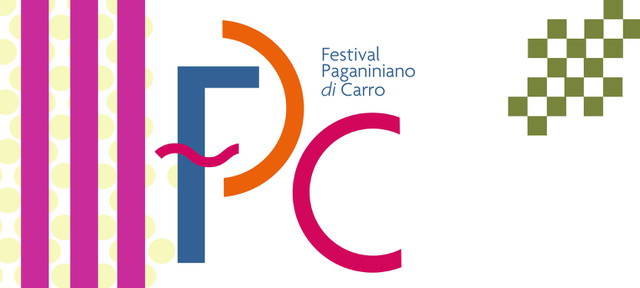Critical Thinking and Pluralism – The Jakarta Post – Pietro Paganini
The The Jakarta Post the main Indonesian news paper in English language published my comment on the crisis of Liberal Democracies. This comment follows a previous analysis of Liberal Democracies on The Jakarta Post, available here >>>
The comment is available here on TJP platform >>> or here below.
Critical Thinking and Pluralism
In contemporary democratic exchange, those ideas and political projects that are representative of individual diversity are increasingly unpopular and more likely to be interpreted as adversaries, or indeed enemies to be tackled rather than resources to learn from in order to advance debate and knowledge and to improve the rules that govern social harmony. This results in increasingly less room for dialogue, a wearing away of democracy and representation, the annihilation of diversity and therefore of freedoms and prosperity. This is exactly what we are witnessing in Europe.
The diversity represented by other individuals must be protected and promoted, even when it is something we neither share nor like, because it enriches our exchanges, helping us to identify and resolve new problems of life every time, in order to improve the rules that govern social harmony.
READ HOW TO IMPROVE THE DEBATE AROUND CLIMAT >>>
Diversity is promoted through Liberal Democracy, i.e. the representation of citizens through institutions to which we have entrusted the task of guaranteeing social harmony. It is also promoted by creating forums for exchanges aimed not only at transmitting the different needs and desires of citizens, but also at stimulating critical thinking and thus improving our approach to tackling the problems presented by living together. In these public forums, different ideas or approaches to the world are tolerated and exchanged.
Do such forums still exist? Rather than increasing and improving in the construction of an Open Society, they are diminishing. This is a contradiction. Resources and opportunities – such as traditional and social media – have increased, yet critical exchange has diminished. Quantity has increased, but quality has deteriorated more than ever.
READ THE PROPOSAL TO REFORM ARTICLE 71 OF THE CONSTITUTION >>>
Traditional and social media, partly for different reasons – cultural in the former instance and in terms of technical structure in the latter – have become forums in which to seek confirmation of the ideas we have already brought on board. They do not offer scope for exchange. The search for confirmation is part of human nature, when critical thinking and the acceptance of diversity are not stimulated. The confirmation of our own ideas prompts us to combat those of others, but in the sense of wiping them out, and no longer in the spirit of democratic exchange, or the experimental method.
For the experimental method on which Liberalism is founded, different ideas are necessary to improve the way in which we tackle and solve the problems of social harmony; they offer a broader world view, more hypotheses, a greater number of variables to consider.
READ THE 9 POINTS TO RENOVATE THE CONSTITUTION >>>
The experimental method is founded on the exercise of critical thinking, so it requires effort, precisely because the variables increase, requesting constant endeavor. It is also frustrating, however, because it never yields the perfect solution that those who scorn diversity are deluded into believing is easy to find. The experimental method develops solutions that require fine-tuning and need working on all the time, because time presents new variables and new kinds of diversities.
Frustration is an understandable sentiment. We would all like to have an immediate, perfect, reassuring solution, which we tend to seek by invalidating the diversity represented by others and taking refuge in projects with a promise of certainty. And this is where the illusion that one individual can impose their choices on everyone comes (back) in.
WATCH AGAIN MY TALK ON RAI2 >>>
Be warned, however, that the alternative to a return to populism or to a single individual at the helm is just as dangerous. Because it is based not on the experimental method, but on an elitist, classist idea of democracy and representation. It is with these same dynamics, hostile to dialogue, that also those who call themselves Democrats and Liberals oppose individual diversity. Because they believe the individual is less worthy than the group when it comes to making wise, rational choices. Effectively, the aspiring cultural élite (believing it is in possession of cultural means as well as means of production), identifies with Liberal Democracy and Liberalism, imitating its principles but acting in contrast with them. It denies and scorns diversity, considering it incompatible with the collective decision-making processes it believes necessary to govern social harmony.
These people who call themselves Democrats and Liberals purport to defend Liberal Democracy and democratic representation, and accuse others – the citizens – to be ignorant of democracy. Ultimately, they seek to exclude those citizens that represent individual diversity from the institutions that are supposed to represent diversity.
We are experiencing the suspicion we have acquired: that not all Western countries are not a mature Liberal Democracy. It is precisely those who should have the greatest resources to encourage democratic exchange that are proving to be the worst enemies of proper democracy exercised by responsible citizens.
It is my task, and our task, to promote this exchange. The ideas and projects of others are precious resources to be celebrated. The prevalence of a number of different political projects at elections is not something negative, but one step in the long journey towards an Open Society, in which diverse, free individuals are able to live in harmony and prosper.






